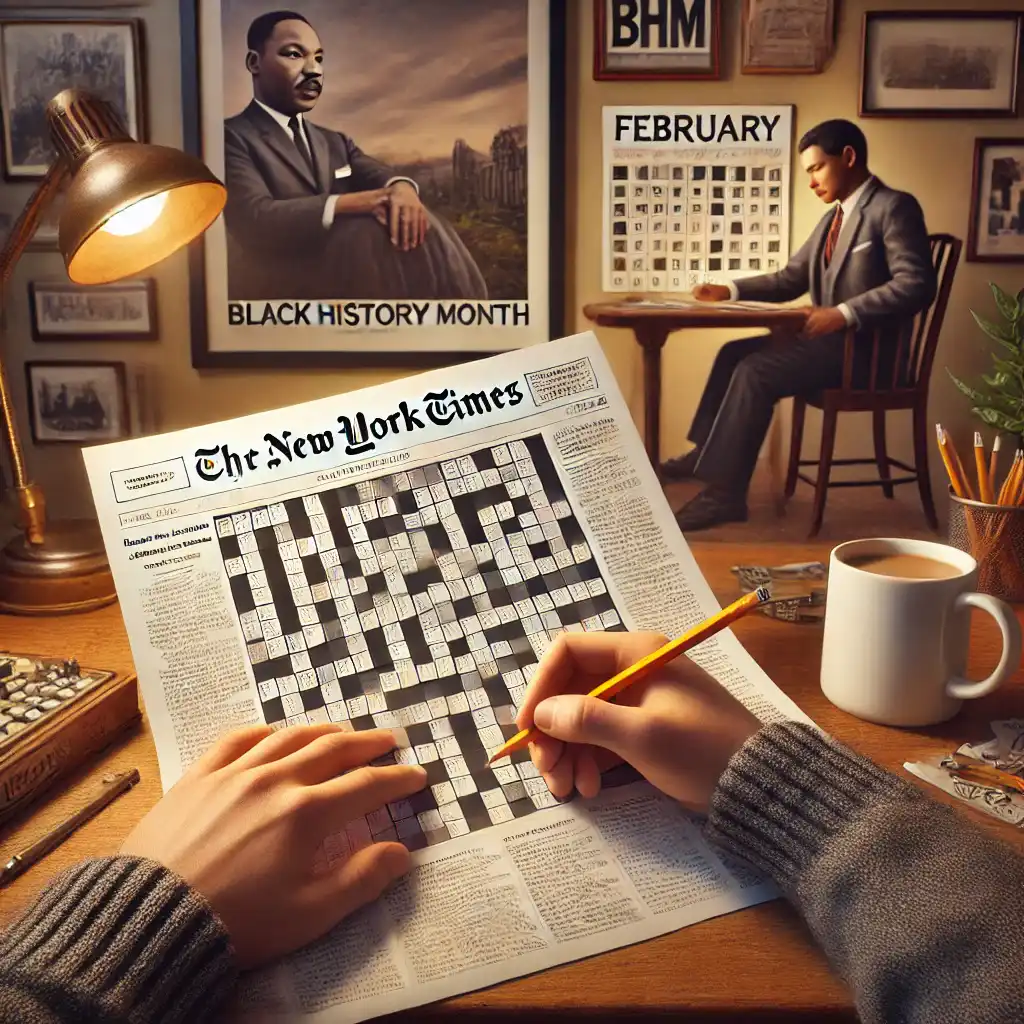Unraveling the BHM Mystery: Cracking the NYT Crossword Clue
Ever found yourself stumped by black history month abbr NYT crossword clue? You’re not alone! In this blog post, we’ll dive into the world of crossword puzzles, Black history, and those pesky abbreviations that leave us scratching our heads. Get ready to become a crossword pro and brush up on your knowledge of African American heritage along the way!

Introduction:
Crossword puzzles have been a beloved pastime for generations, challenging our minds and expanding our vocabulary. The New York Times crossword, in particular, is known for its clever clues and cultural references. When it comes to Black History Month, these puzzles often incorporate abbreviations that can leave even seasoned solvers puzzled. Let’s explore the most common abbreviations, their meanings, and the rich history behind them.
What does BHM stand for in crossword puzzles?
BHM is the most frequent abbreviation you’ll encounter for Black History Month in crossword puzzles. This three-letter combo is a crossword constructor’s dream, fitting neatly into those tricky corners of the grid. But why BHM? It’s simple: Black (B) History (H) Month (M). This shorthand has become so ubiquitous that it’s now widely recognized beyond the world of puzzles.
When did Black History Month begin?
To truly appreciate the significance of BHM, we need to travel back in time. The roots of Black History Month can be traced to 1926 when historian Carter G. Woodson and the Association for the Study of Negro Life and History announced the second week of February as “Negro History Week.” This week was chosen because it coincided with the birthdays of Abraham Lincoln and Frederick Douglass, two figures who played pivotal roles in shaping African American history.
The year 1976 marked a pivotal moment in the evolution of this celebration. What began as a week-long observance grew into a month-long recognition of African American achievements and contributions. President Gerald Ford played a crucial role in this expansion, officially acknowledging Black History Month at the federal level. He encouraged all Americans to delve deeper into the often overlooked accomplishments of Black individuals throughout the nation’s history.
This presidential endorsement represented a significant step forward in promoting awareness and appreciation of African American heritage. It set the stage for February to become an annual period of reflection, education, and celebration across the United States. Since then, Black History Month has grown in prominence, fostering important conversations about race, equality, and the diverse tapestry of American culture.
As mentioned earlier, February was chosen due to the birthdays of Lincoln and Douglass. But there’s more to it than that. February is also significant in African American history for other reasons:
- The 15th Amendment, granting African Americans the right to vote, was passed on February 3, 1870.
- The NAACP was founded on February 12, 1909.
- The first African American Senator, Hiram Revels, took his oath of office in February 1870.
These historical events make February a month rich in significance for the African American community.
What other abbreviations might you encounter in NYT crossword clues related to Black History Month?

While BHM is the most common, you might come across other abbreviations in your crossword adventures:
- NAACP: National Association for the Advancement of Colored People
- MLK: Martin Luther King Jr.
- SNCC: Student Nonviolent Coordinating Committee
- SCLC: Southern Christian Leadership Conference
- HBCUs: Historically Black Colleges and Universities
These organizations and figures have played crucial roles in the fight for civil rights and the advancement of African Americans in the United States.
How can understanding these abbreviations improve your crossword skills?
Familiarity with these abbreviations not only helps you solve puzzles more quickly but also deepens your understanding of African American history. Crossword puzzles often serve as a gateway to learning, prompting solvers to research clues they don’t immediately recognize. By encountering these abbreviations repeatedly, you’re reinforcing your knowledge of important historical events and figures.
What are some key figures and events often referenced in Black History Month-related clues?
New York Times crossword constructors love to include references to influential African Americans and significant events. Some names and topics you might encounter include:
- Rosa Parks and the Montgomery Bus Boycott
- The Harlem Renaissance and writers like Langston Hughes
- Civil Rights leaders such as John Lewis and Malcolm X
- Groundbreaking athletes like Jackie Robinson and Jesse Owens
- Pioneering entertainers like Ella Fitzgerald and Louis Armstrong
By familiarizing yourself with these key figures and events, you’ll be better equipped to tackle Black History Month-themed clues in future puzzles.
How can solving crossword puzzles contribute to a better understanding of Black history?
Crossword puzzles serve as a unique educational tool, encouraging solvers to explore topics they might not otherwise encounter. By including clues related to Black History Month and African American achievements, puzzles can:
- Spark curiosity and prompt further research
- Highlight lesser-known historical figures and events
- Reinforce knowledge through repetition
- Encourage discussions about history and culture
- Promote a more inclusive understanding of American history
Conclusion:
Conclusion:
Cracking the BHM code in NYT crossword puzzles is more than just filling in boxes – it’s an opportunity to engage with and celebrate Black history. As you tackle future puzzles, remember that each abbreviation and clue represents a piece of a larger, rich tapestry of African American heritage. By understanding the context behind these clues, you’re not only becoming a better solver but also gaining a deeper appreciation for the contributions of Black Americans to our shared history.
So the next time you see “BHM” or any other Black History Month-related abbreviation in a crossword clue, take a moment to reflect on the significance behind those letters. Who knows? You might just learn something new while conquering that challenging puzzle!
For more information on the history and significance of Black History Month, visit the official website of the Association for the Study of African American Life and History (ASALH) at https://asalh.org/about-us/our-history/. This organization, founded by Carter G. Woodson, continues to promote, research, preserve, and disseminate information about Black life, history, and culture to the global community.
